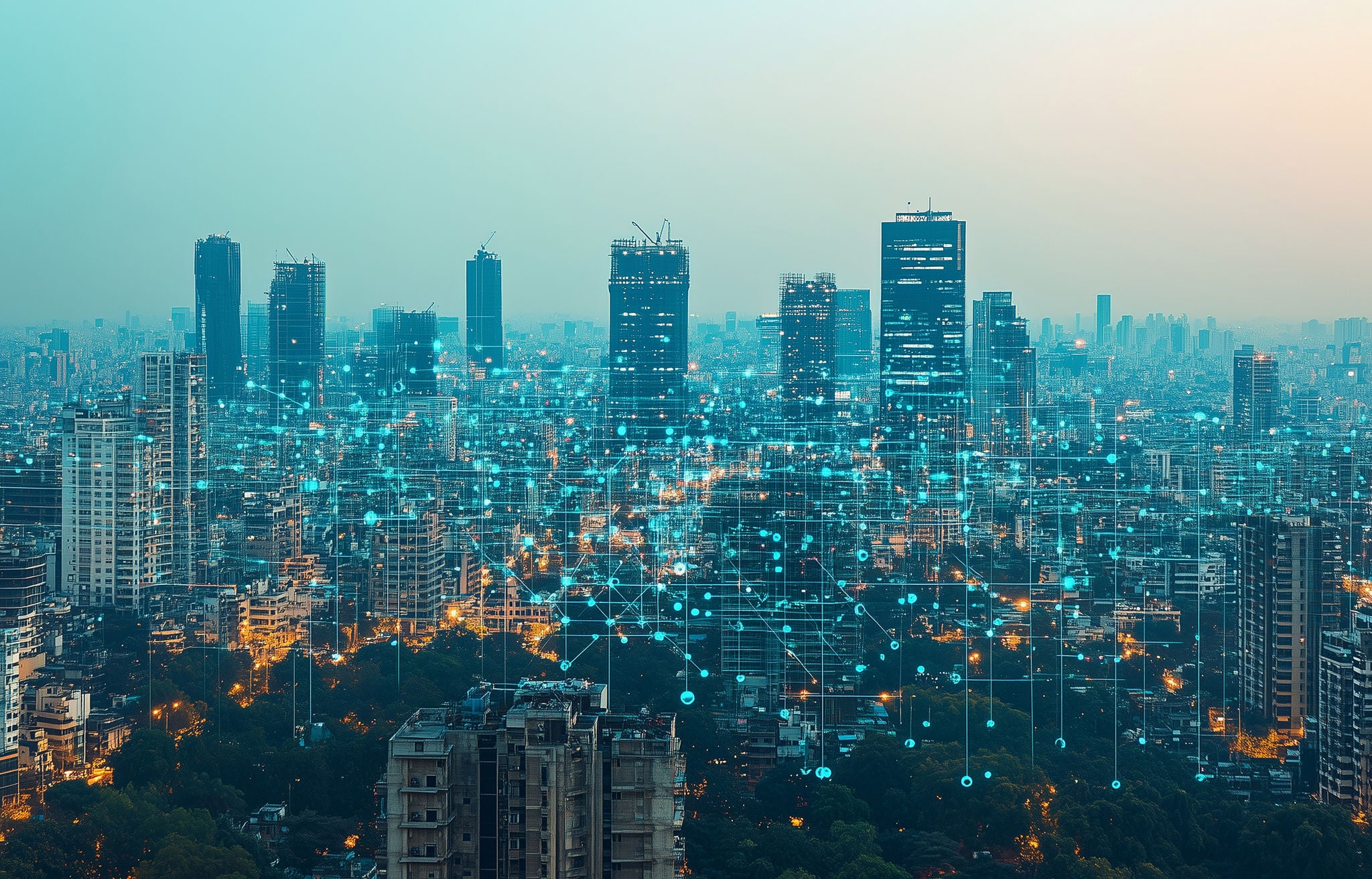EY refers to the global organization, and may refer to one or more, of the member firms of Ernst & Young Global Limited, each of which is a separate legal entity. Ernst & Young Global Limited, a UK company limited by guarantee, does not provide services to clients.

In today’s digital age, data privacy compliance is vital for businesses, not just for compliance but also to build customer trust. Global Capability Centers (GCCs) can adopt a well-defined GCC data privacy strategy by establishing Privacy Centre of Excellence which can assist in conducting key activities through AI-driven privacy solutions.
In brief
- With over 1,700 GCCs employing 1.9 million professionals, India is a pivotal hub for global business operations.
- Establishing Privacy Centres of Excellence (CoEs) within India's GCCs ensures data privacy compliance with evolving global data protection regulations and fosters innovation.
- DPDPA compliance in India, underscores the nation's commitment to safeguarding personal data while addressing privacy risks in outsourcing and promoting growth.
- India's law and technology graduates provide a 40% to 70% cost advantage, enabling companies to invest in privacy automation without compromising quality.
In today’s digital world, data privacy is a crucial business function — not just regulatory compliance. It builds trust and ensures sustainability. As global data protection laws evolve, non-compliance penalties rise, urging organizations to establish Privacy Centre of Excellence (CoE) in Global Capability Centers (GCCs).
A well-functioning Privacy Centre of Excellence does not just ensure compliance, it embeds privacy-first thinking by fostering digital trust and privacy by design into organizational culture. It blends legal expertise, cybersecurity compliance, and technology, transforming privacy into a cross-functional discipline that supports business agility and innovation.1
Why establish a Privacy CoEs?
Global data privacy laws like GDPR, CCPA, and India’s DPDPA, 2023, require strong governance. Privacy CoEs help streamline compliance, improve consistency, and reduce risk. They also enable scalable governance, real-time responses, and privacy-by-design, transforming privacy into a strategic asset. Early investment helps organizations boost agility, lower costs, and align privacy with growth goals.
Leading firms are already reaping the benefits of Privacy CoEs. A global bank established its CoE in India to streamline privacy assessments and third-party governance, reducing regulatory risk and improving data stewardship. E-commerce companies have also used CoEs to balance personalization with privacy, enhancing both customer experience and compliance.
India’s GCC advantage in privacy transformation
India houses over 1,700 GCCs, employing 1.9 million professionals, making it a critical node in global business operations. Yet, fewer than 10% of GCCs currently focus on privacy-related functions. In an environment of increasing regulatory complexity2, this presents a significant opportunity.
By setting up Privacy CoEs in India, MNCs can centralize privacy operations, standardize frameworks across jurisdictions, and shift from reactive to proactive compliance3. These centers foster innovation through privacy-enhancing technologies (PETs), privacy automation, and AI-driven privacy and governance, boosting both efficiency and customer trust.4
India’s cybersecurity landscape further strengthens its position as a hub for privacy innovation. With over 79 million cyberattacks recorded in 2023, the urgency for robust data protection mechanisms and resources is evident. The Indian cybersecurity job market is expected to reach INR 28,000 Crore by the end of 2025 providing a strong foundation for businesses seeking to enhance their privacy and security functions.5 Additionally, India offers significant cost advantages compared to Western markets, making it an attractive location for establishing a Privacy CoE without compromising quality.6
The emerging hub of privacy innovation - India’s value proposition for Privacy CoEs is built on three pillars:
Pillar one: A robust regulatory landscape
- DPDPA, 2023: India’s comprehensive data privacy law aligns with global standards on consent, data governance frameworks, and localization
- State-level support: Policies in states like Karnataka and Telangana offer incentives for setting up GCCs and privacy centers7
- Cybersecurity focus: India achieved Tier 1 status in the Global Cybersecurity Index (2024). Initiatives like the National Cybersecurity Reference Framework (NCRF) mandate increased cybersecurity spending, reinforcing privacy protection8
Pillar two: Skilled legal and tech workforce
- Law graduates: India produces over 100,000 annually, trained in India’s data protection laws and global data protection laws. These professionals are well-suited for roles in compliance, policy drafting, and privacy impact assessments
- Tech talent: With 3.4 million software engineers and rising expertise in AI, cybersecurity, and privacy engineering, India leads in implementing privacy-by-design, RegTech, and secure AI governance9
- Workforce strength: India is home to 28% of the global cybersecurity compliance and data privacy workforce and employs a growing number of women in privacy-related roles10
Pillar three: Cost-efficiency and scalability
- Cost advantage: Organizations benefit from a 40% to 70% cost advantage over Western markets without compromising quality11
- Infrastructural benefits: GCC cities like Bengaluru, Hyderabad, and Pune offer robust infrastructure and a favorable talent-to-cost ratio
- Tax and regulatory benefits: Government incentives, such as SEZ benefits, R&D credits, and lower corporate taxes improve cost efficiency
Early movers reap long-term gains. Organizations that establish Privacy CoEs in India gain a clear advantage in regulatory readiness and customer trust. They attract top talent and build resilient governance models, making privacy a catalyst for innovation, not a roadblock.
Privacy as a competitive edge
Privacy is central to business growth, innovation, and trust. India provides the ideal ecosystem for world-class Privacy CoEs, with legal and tech expertise, scalable infrastructure, and a progressive regulatory framework. The DPDPA 2023, India’s cybersecurity growth, and its skilled workforce make it the ideal hub for global privacy strategies. As AI and digital transformation reshape business, Indian GCCs are poised to lead the next wave of privacy innovation.
Saurabh Mehendale - Director, Cybersecurity, Aditya Avadhani - Senior Consultant, Cybersecurity, Mohit Kumar - Associate Consultant, Cybersecurity have also contributed to the article.
Summary
Data privacy has become a strategic differentiator in the market for gaining customer trust. India provides an ideal environment to establish a Privacy Centre of Excellence (CoE) for GCCs, as it is enriched with top talent and a cost-effective business landscape. With the Digital Personal Data Protection Act, 2023, India has strengthened its privacy regulations. Newly developed technologies offer solutions including AI in data privacy have been implemented to manage the data privacy compliance requirements efficiently.
How EY can help
-
Data protection & privacy services at EY ensures data security, lifecycle management, compliance frameworks, risk assessment & strategic privacy solutions.
Read more -
Discover how EY's Cybersecurity Transformation solution can help your organization design, deliver, and maintain cybersecurity programs.
Read more -
Cybersecurity Managed Services at EY provide strategic security solutions, ensuring effective security management to mitigate cyber risks for continued growth.
Read more
Related articles
How GenAI can drive innovation in contract management and deliver value
Discover how Generative AI can revolutionize contract management, boosting efficiency, reducing risks, and unlocking new value.
Transforming data privacy: Digital Personal Data Protection Rules, 2025
Read the Digital Personal Data Protection Rules 2025 outlining data principal rights, itemized notices, breach response, parental consent, and SDFs obligations for compliance.
How shared service platforms add value to Private Equity (PE) firms
Explore how shared services platforms boost efficiency and drive value for Private Equity firms, optimizing operations and cutting costs.






